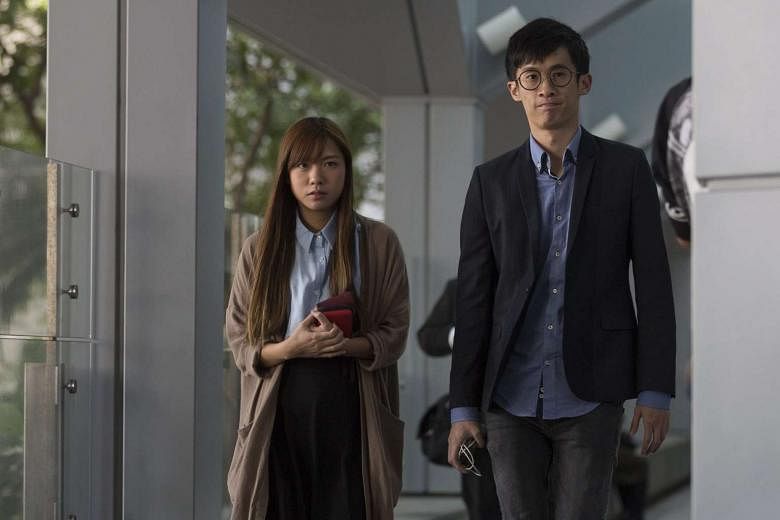HONG KONG • The number of pro-democracy lawmakers elected to Hong Kong's Legislative Council who may lose their seats has grown to 10, after a court was asked to rule whether eight people failed to take their oaths of office properly.
Mr Robin Cheng, a veteran member of the Taxi Drivers and Operators Association, filed the lawsuit on Wednesday, asking the court to declare the swearing-in of eight lawmakers invalid and for their seats to be vacated.
Earlier, two legislators had infuriated the Chinese government when they inserted a derogatory term for China into their oaths, taken last month, and pledged loyalty to the "Hong Kong nation".
The actions of the pair, Mr Sixtus Leung and Ms Yau Wai Ching, prompted Beijing to interpret the city's mini-Constitution on Monday, specifying that oaths must be made "sincerely and solemnly" and be read accurately, with no chance of retaking them.
In his judicial review application filed at the High Court, Mr Robin Cheng accuses eight lawmakers of failing to take their oaths in accordance with the rules set on Monday by the National People's Congress Standing Committee .
The eight are Mr Raymond Chan, Mr Cheng Chung Tai, Mr Eddie Chu, Ms Lau Siu Lai, Mr Nathan Law, "Long Hair" Leung Kwok Hung, Mr Shiu Ka Chun and Mr Edward Yiu, the South China Morning Post reported.
It was not the first time Mr Robin Cheng had used the judicial process to help forward the interests of Beijing, the New York Times reported.
In late 2014, his group successfully sued to have an injunction issued to clear portions of a major Hong Kong thoroughfare that was the scene of pro-democracy demonstrations.
The judicial review filed at the High Court cited Beijing's recent interpretation of the Basic Law as grounds for vacating seats of anti-establishment lawmakers.
"The variations in their oath mean one thing, that they did not sincerely take the oath," Mr Robin Cheng told broadcaster RTHK.
"If they did not sincerely swear allegiance to the country and the Hong Kong Special Administrative Region, how are they qualified to become Hong Kong's legislators?"
Applying for judicial review in Hong Kong is a two-step process. The court first has to give the applicant permission to go ahead with the case.
Judges will determine whether the person asking for the review has "sufficient interest in the matter". It is unclear what interest Mr Robin Cheng has in the case, although the taxi drivers' association is a corporate member of Hong Kong's transport functional constituency, a system in which trade groups are given seats on the Legislative Council.
On Sunday, news of the impending ruling from China set off street protests in Hong Kong, ending with a clash between the police and protesters in which officers in riot gear used pepper spray on the crowd, the New York Times reported.

